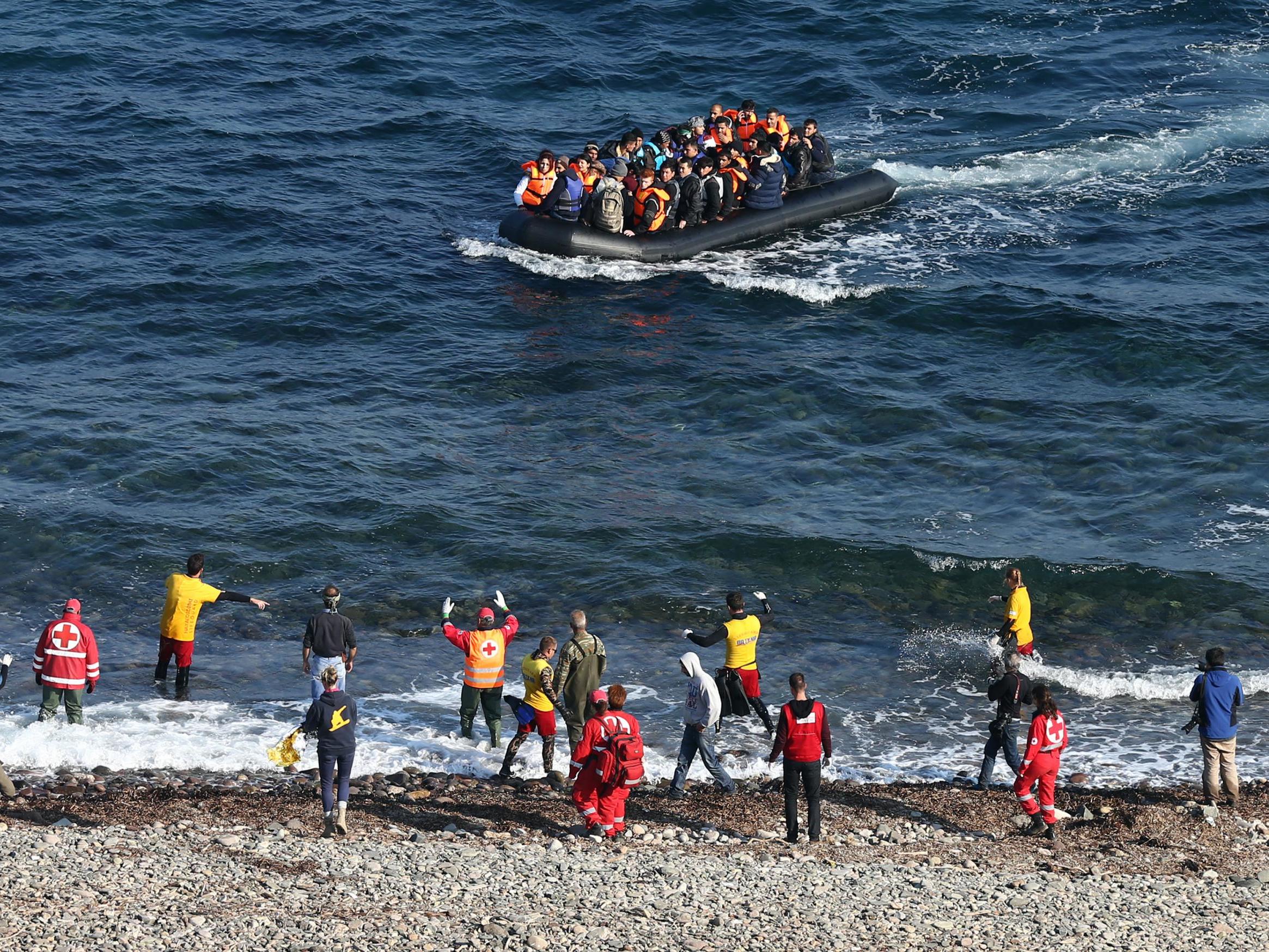Greece wants to build 1.7-mile floating barrier to keep migrants out
Almost 60,000 made crossing to Greek islands last year

Your support helps us to tell the story
From reproductive rights to climate change to Big Tech, The Independent is on the ground when the story is developing. Whether it's investigating the financials of Elon Musk's pro-Trump PAC or producing our latest documentary, 'The A Word', which shines a light on the American women fighting for reproductive rights, we know how important it is to parse out the facts from the messaging.
At such a critical moment in US history, we need reporters on the ground. Your donation allows us to keep sending journalists to speak to both sides of the story.
The Independent is trusted by Americans across the entire political spectrum. And unlike many other quality news outlets, we choose not to lock Americans out of our reporting and analysis with paywalls. We believe quality journalism should be available to everyone, paid for by those who can afford it.
Your support makes all the difference.Greece wants to install a floating barrier to stop refugees and migrants from reaching its shores, government officials have said.
The 1.7-mile fence is expected to be set up in the Aegean Sea off the Greek island of Lesbos within the next three months after a private contractor is found to build it.
A resurgence in the number of migrants and refugees arriving by sea to Lesbos and other eastern Greek islands through Turkey has caused severe overcrowding at refugee camps.
The net-like barrier will rise 50cm above water and carry flashing lights to make it visible at night, according to a government document inviting vendors to bid for the contract.
The defence ministry estimates it will cost €500,000 (£423,000), which includes four years of maintenance.
The government’s description says the “floating barrier system” needs to be built “with non-military specifications” and “specific features for carrying out the mission of (maritime agencies) in managing the refugee crisis”.
If the fence is successful, it is understood more parts may be added and it could reach up to eight to nine miles.
A government official, who asked not to be named, said: “This contract process will be executed by the defence ministry but is for civilian use – a process similar to that used for the supply of other equipment for [camps] housing refugees and migrants.”
Nikos Panagiotopoulos, the country’s defence minister, said it would act as “a natural barrier”.
He told Skai Radio: “If it works like the one in Evros, I believe it can be effective,” referring to a cement and barbed-wire fence Greece set up in 2012 along its northern border with Turkey to stop a rise in migrants crossing there.
Greece’s six-month old centre-right government has promised to take a tougher stance on the migration crisis and plans to set up detention facilities for migrants denied asylum and to speed up deportations back to Turkey.
Under a 2016 migration agreement between the European Union and Turkey, the Turkish government was promised up to €6bn to help stop the mass movement of migrants to Europe.
Nearly 60,000 migrants and refugees made the crossing to the islands last year, nearly double the number recorded in 2018, according to data from the United Nations’ refugee agency.
Additional reporting by agencies
Join our commenting forum
Join thought-provoking conversations, follow other Independent readers and see their replies
Comments